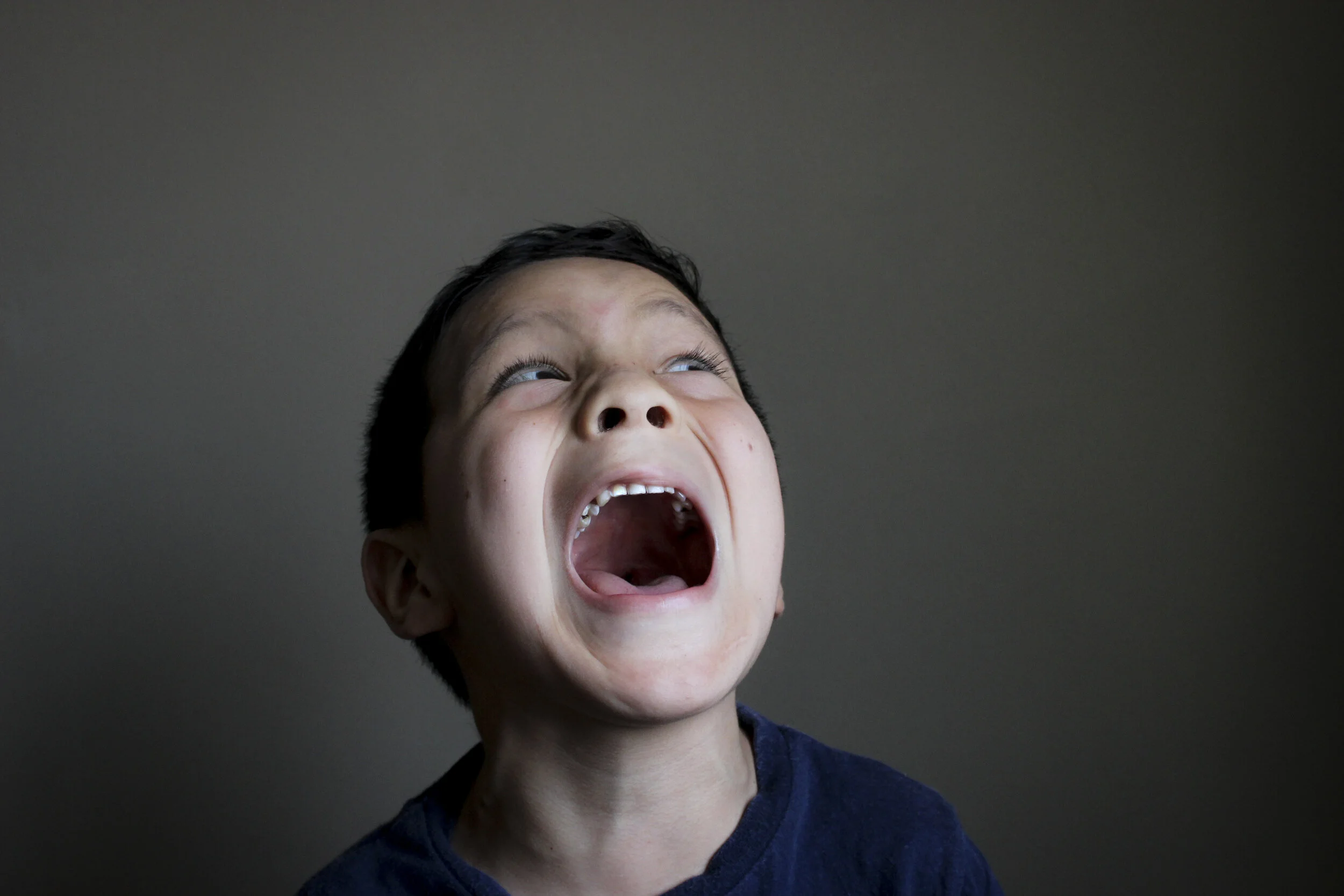Imagine this: your kids are sitting quietly on the couch, watching a show together. It’s seemingly the first time all day that they haven’t been bugging each other about something. You breathe a sigh of relief: you can finally finish the coffee that’s been sitting on the counter all morning. You sneak off wordlessly to the kitchen to finish your cold coffee and scroll through Instagram. You’ve only been gone a few minutes when you hear a yell, and you have to drag yourself back to the living room for yet another 15-mintue lecture to your oldest about not hitting her sister.
Those lectures are not fun for anybody, and it seems like they never work. Your child may smile and nod, but in a half hour the whole cycle is going to repeat itself again. PCIT, or Parent-Child Interaction Therapy, is a therapy for kids and parents designed to break this cycle. Read on to learn more about how this parent child counseling approach can help strong-willed kids to get attention from good behavior, rather than bad behavior.
How Parent Child Counseling Breaks the Bad Behavior Cycle
Many parent child counseling strategies are based on the idea that children will repeat the behaviors we pay attention to. It’s a simple concept, but it can be really difficult to put in to practice, especially when you consider that both positive and negative attention can make a behavior more likely to happen again. PCIT helps parents to “feed” the good behaviors they want to see more of by heaping on positive attention and praise, while “starving” unhelpful behaviors by depriving them of attention.
Often, we ignore kids when they are doing the right thing. Think of the scenario above with the siblings sitting quietly on the couch: it’s only natural to want to slip away unnoticed for a few minutes, especially if your kids have been bickering all day. But by ignoring this good behavior and only coming back into the room when the children start fighting, the parent has accidentally heaped a big dose of attention onto that bad behavior. The child who hit has learned that nobody notices when she’s being good, but that hitting her sister is a great way to get mom’s attention.
What Is Parent-Child Interaction Therapy?
Parent-Child Interaction Therapy, or PCIT, is a form of counseling for young kids who have problems with acting out. It’s an evidence-based treatment, meaning that it’s been heavily researched to make sure it’s as effective as possible for the largest number of families. In PCIT, a counselor acts like a coach for parents, giving them new discipline tools to try with their child and helping them to implement them successfully.
The goal of PCIT isn’t to simply punish a child for being “bad”: it also helps a family create more fun experiences together that provide a child with opportunities to do the right thing. Often, by the time a family tries PCIT, parents may feel exhausted and exasperated by their child’s behavior, which makes it hard to enjoy time spent together. Children may sense their parents pulling back, which can lead them to act out even more in order to keep their parents close.
The Two Phases of Parent-Child Interaction Therapy
PCIT is divided into 2 stages: in Phase 1, parents learn play therapy skills that they can use at home with their child on a daily basis. By setting aside a small amount of time each day for “special playtime”, parents give kids the focused, individual attention they are craving so intensely at a time when they’re behaving well. This helps kids to see that they can get more (and better) attention from parents by doing the right thing, and can help parents to reconnect with their kids and enjoy time spent together.
In Phase 2, parents learn a set of simple discipline strategies to help change difficult behaviors. Consistent, effective, and non-physical discipline helps put parents back in the driver’s seat and gives kids the consistent boundaries they need to feel secure. Over time, kids learn that their old acting-out behaviors like negotiating, tantrums, and whining don’t work anymore: the rules are the rules, and they don’t change. Once that happens, negative behaviors tend to fade away.
What Kids Benefit from Parent Child Counseling Like PCIT?
PCIT was designed to be used with kids ages 2-7 who have disruptive behaviors at home, school, or with others. It’s been used with children who are very strong-willed and have a hard time following rules, as well as children whose behavior problems stem from traumatic experiences. Because PCIT strategies are gentle and based on common sense and logic, I have found these skills can be modified to work well with older kids, too.
Here are a few signs your young child could benefit from parent child counseling such as PCIT:
Frequent tantrums that are longer and more intense than other children her age
Deliberately annoying behavior, like whining, pouting, stomping feet, or calling people names
Breaking things on purpose when angry
Difficulty following directions or being told “no”
Negotiating, stalling, or ignoring you when you give an important instruction
How to Find a Parent Child Counselor
PCIT uses a “bug in the ear” approach in counseling sessions: your therapist teaches you the skills, and then observes you playing with your child and gives you real-time feedback through a microphone device in your ear. This unique setup means that “pure” PCIT usually occurs in a big therapy office or agency that has equipment like a two-way mirror or a special observation room.
Here’s a list of therapists who are certified to practice PCIT in the US as well as worldwide. I have completed a certificate course in PCIT from UC Davis, and although I don’t practice “pure” PCIT, I borrow many of the skills in my work with children and preteens. You can learn more about my therapy practice here.
Looking to get started in therapy? Reach out to me to learn more about my approach, and how to help break the cycle of bad behavior with strong-willed kids.




